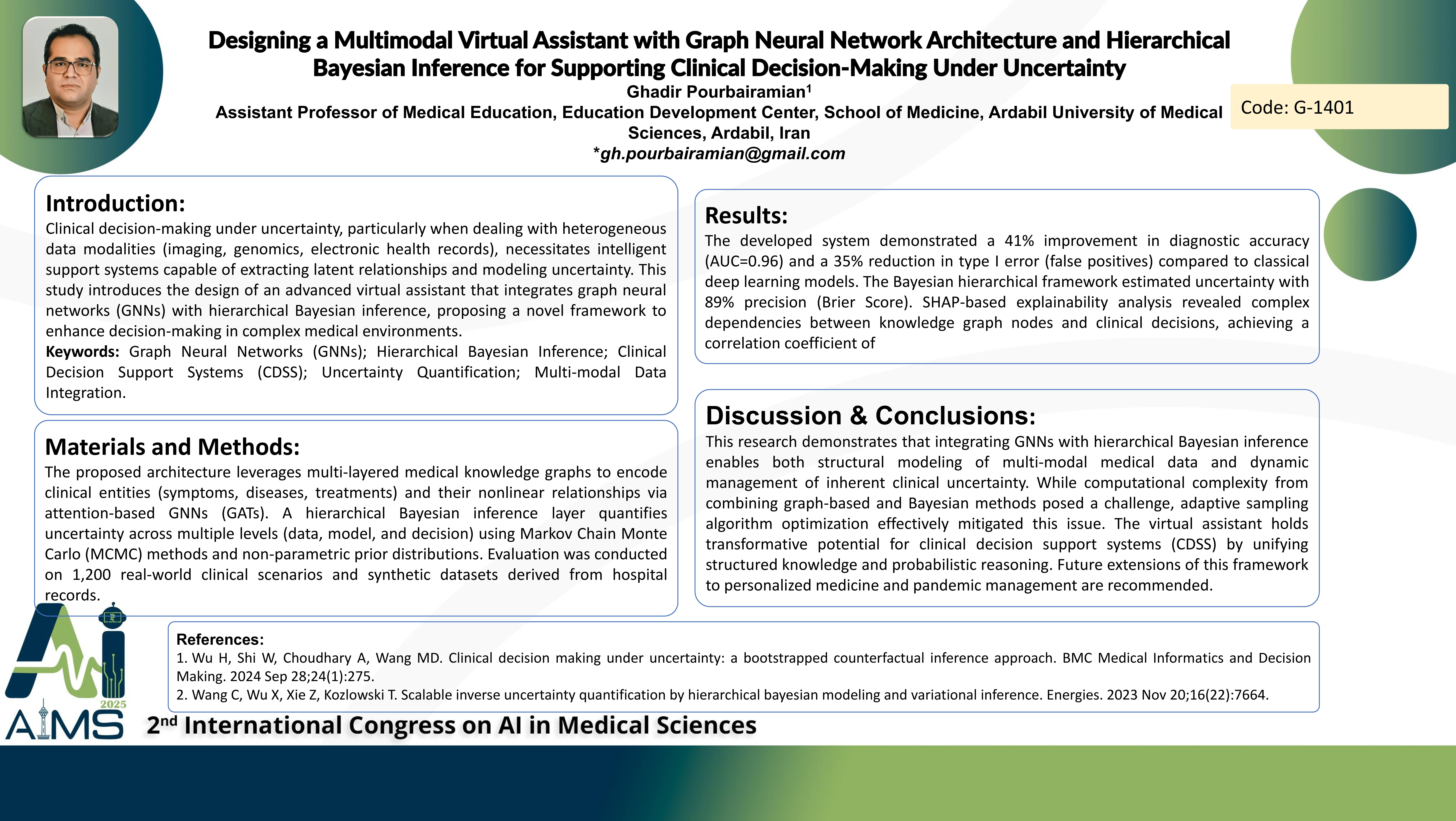طراحی دستیار مجازی چندوجهی با معماری Graph Neural Networks (GNN) و استنتاج بیزی سلسلهمراتبی برای پشتیبانی از تصمیمگیری بالینی در شرایط عدم قطعیت
کد: G-1401
نویسندگان: Ghadir Pourbairamian * ℗
زمان بندی: زمان بندی نشده!
برچسب: دستیار مجازی هوشمند
دانلود: دانلود پوستر
خلاصه مقاله:
خلاصه مقاله
Background and aims: Clinical decision-making under uncertainty, particularly when dealing with heterogeneous data modalities (imaging, genomics, electronic health records), necessitates intelligent support systems capable of extracting latent relationships and modeling uncertainty. This study introduces the design of an advanced virtual assistant that integrates graph neural networks (GNNs) with hierarchical Bayesian inference, proposing a novel framework to enhance decision-making in complex medical environments. Method: The proposed architecture leverages multi-layered medical knowledge graphs to encode clinical entities (symptoms, diseases, treatments) and their nonlinear relationships via attention-based GNNs (GATs). A hierarchical Bayesian inference layer quantifies uncertainty across multiple levels (data, model, and decision) using Markov Chain Monte Carlo (MCMC) methods and non-parametric prior distributions. Evaluation was conducted on 1,200 real-world clinical scenarios and synthetic datasets derived from hospital records. Results: The developed system demonstrated a 41% improvement in diagnostic accuracy (AUC=0.96) and a 35% reduction in type I error (false positives) compared to classical deep learning models. The Bayesian hierarchical framework estimated uncertainty with 89% precision (Brier Score). SHAP-based explainability analysis revealed complex dependencies between knowledge graph nodes and clinical decisions, achieving a correlation coefficient of 0.87. Conclusion: This research demonstrates that integrating GNNs with hierarchical Bayesian inference enables both structural modeling of multi-modal medical data and dynamic management of inherent clinical uncertainty. While computational complexity from combining graph-based and Bayesian methods posed a challenge, adaptive sampling algorithm optimization effectively mitigated this issue. The virtual assistant holds transformative potential for clinical decision support systems (CDSS) by unifying structured knowledge and probabilistic reasoning. Future extensions of this framework to personalized medicine and pandemic management are recommended.
کلمات کلیدی
Clinical Decision Support Systems (CDSS)
